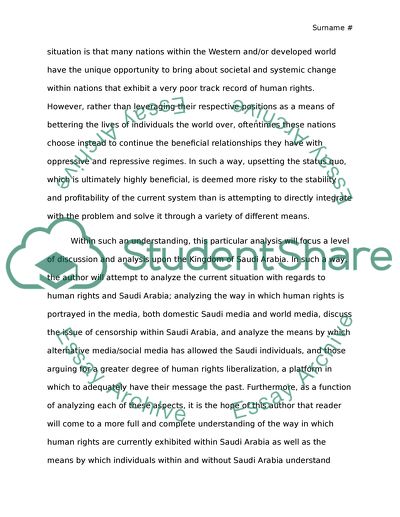Cite this document
(“Human Rights in Saudi Arabia and its Representation in the Media Research Paper”, n.d.)
Human Rights in Saudi Arabia and its Representation in the Media Research Paper. Retrieved from https://studentshare.org/journalism-communication/1478156-human-rights-in-saudi-arabia-and-its
Human Rights in Saudi Arabia and its Representation in the Media Research Paper. Retrieved from https://studentshare.org/journalism-communication/1478156-human-rights-in-saudi-arabia-and-its
(Human Rights in Saudi Arabia and Its Representation in the Media Research Paper)
Human Rights in Saudi Arabia and Its Representation in the Media Research Paper. https://studentshare.org/journalism-communication/1478156-human-rights-in-saudi-arabia-and-its.
Human Rights in Saudi Arabia and Its Representation in the Media Research Paper. https://studentshare.org/journalism-communication/1478156-human-rights-in-saudi-arabia-and-its.
“Human Rights in Saudi Arabia and Its Representation in the Media Research Paper”, n.d. https://studentshare.org/journalism-communication/1478156-human-rights-in-saudi-arabia-and-its.


